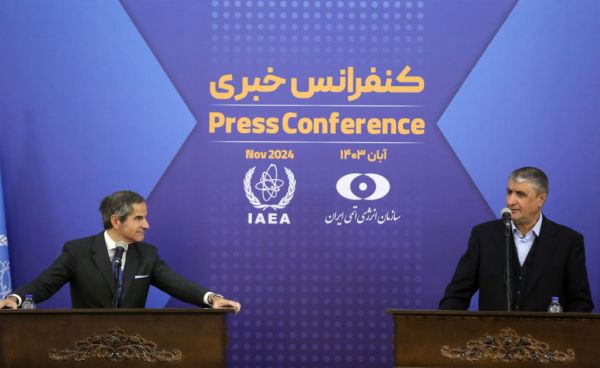In a shocking development last week, Amnesty International effectively exonerated Israel of genocide.
This was easy to miss, and not just because of the recent crush of news. Amnesty’s report, titled “ ‘You Feel Like You Are Subhuman’: Israel’s Genocide Against Palestinians in Gaza,” buried the lede, as journalists say. And most of the media coverage reflected that.
The New York Times’ headline read: “Amnesty International Accuses Israel of Genocide in Gaza.” The Los Angeles Times’ was similar: “Amnesty International says Israel is committing genocide in Gaza.”
Before I get to Amnesty’s overlooked acquittal of Israel, it’s worth noting that calling its report unfair would be a profound understatement. Here’s the first sentence: “On 7 October 2023, Israel embarked on a military offensive on the occupied Gaza Strip … of unprecedented magnitude, scale and duration.”
In other words, the story of the Israel-Gaza war, as far as the storied human rights group is concerned, begins not with Hamas’ unprecedented terrorist attack on civilians that day, which included rapes, kidnappings, and other forms of staggering, premeditated barbarity. Rather, it begins with Israel’s response to Hamas' aggression. Hamas, by the way, is an organization that was literally founded on the principle of genocidal eradication of Israel.
This is a bit like beginning a report on America’s “genocide” in Japan by stating, “On April 18, 1942, the United States embarked on a military offensive on the Japanese nation of unprecedented magnitude”—leaving out, until some 50 pages later, that whole Pearl Harbor thing.
None of this is to say that the Israel-Gaza war hasn’t been horrific. Nor is it to say that Israel deserves no criticism for its conduct of the war—even if I think most of the criticisms are exaggerated, often for ideological reasons.
But the Genocide Convention of 1948 is very clear about what constitutes actual or attempted genocide: "acts committed with intent to destroy, in whole or in part, a national, ethnical, racial or religious group."
The idea that Israel is dedicated to genocide of the Palestinians has been routinely bandied about for decades at the United Nations and by anti-Israel governments and organizations. But the Palestinian population has grown more than eightfold since Israel’s founding, according to the Palestinian Central Bureau of Statistics, and the population of the Gaza Strip has increased 600 percent since 1960.
One of the most important words in the U.N.’s definition of genocide is “intent.” And if Israel, which even its enemies characterize as supremely competent and lethal, intends genocide, it’s really, really, bad at it. Indeed, if genocide were the goal, you would think Israel would stop dropping leaflets warning civilians to evacuate areas it’s about to attack or sending Palestinians caravans of aid.
Which brings us back to Amnesty International’s exoneration. On page 101 of its 296-page report, the authors acknowledge that the question of intent is a huge problem for those who accuse Israel of genocide. But they go on to reject “an overly cramped interpretation of international jurisprudence … that would effectively preclude a finding of genocide in the context of an armed conflict.”
If Israel were actually trying to eliminate the Palestinians as a people, I think it would be obvious and easy for Amnesty and others to prove. But the point is that the report essentially concedes that Israel isn’t committing genocide under prevailing interpretations of international law.
Imagine if a prosecutor noted during a murder trial that under the existing statutes and case law, the defendant was not guilty. That might be considered an important concession.
As Commentary’s Seth Mandel writes, “So Amnesty International dissents from international law. That’s fine. Just be up-front about it: Amnesty is not accusing Israel of ‘genocide,’ it is accusing Israel of a different crime which Amnesty has named ‘genocide,’ just so it could use that word.”
It would be one thing if Amnesty issued a report calling for a more capacious definition of genocide under international law. I’d be open to such a recommendation. The existing definition still has the taint of the Soviet Union’s meddling to ensure it didn’t cover its crimes in Ukraine. A better, fairer definition of genocide wouldn’t be bad news for Israel, but it would for Russia and China.
Amnesty didn’t want a discussion about the proper definition of genocide, though. It wanted headlines alleging that Israel committed the crime—and it got them.







Please note that we at The Dispatch hold ourselves, our work, and our commenters to a higher standard than other places on the internet. We welcome comments that foster genuine debate or discussion—including comments critical of us or our work—but responses that include ad hominem attacks on fellow Dispatch members or are intended to stoke fear and anger may be moderated.
With your membership, you only have the ability to comment on The Morning Dispatch articles. Consider upgrading to join the conversation everywhere.